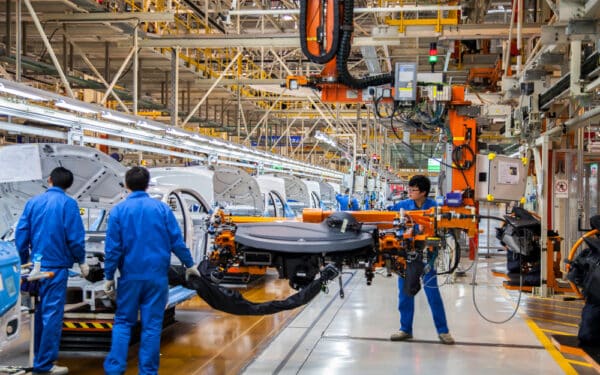A personal view from Ian Stewart, Deloitte’s Chief Economist in the UK.
Deloitte’s latest survey of UK Chief Financial Officers (CFOs), released on Monday, suggests that the top end of the UK corporate sector is doubling down on growth.
2022 will be a year of rising business investment, according to the CFOs of the UK’s largest companies. (The CFOs on this quarter’s panel account for around 20 per cent of the entire UK equity market by market capitalisation). A record number of CFOs rate increasing capital investment as a strong priority for their business, citing growth at home and abroad and the climate transition as the main drivers of investment.
On the face of it, this might seem surprising. The latest CFO survey took place in the first half of December, against a backdrop of the emergence of the Omicron variant, the government triggering its “Plan B” restrictions and soaring inflation. It was an anxious end to the year. Yet despite these headwinds, CFOs’ perceptions of external uncertainty fell slightly, and corporate risk appetite nudged higher. What’s happening?
The game-changer has been the arrival of vaccines and boosters. They seem to have created a cautious optimism that the pandemic is entering a more manageable phase. In the meantime, large companies generally have strong balance sheets and CFOs say demand in the fourth quarter came in above earlier expectations. This is consistent with recent market developments as investors rotate out of defensive stocks which protect against slower growth into equity sectors which benefit from recovery.
2022 will be the third year of the pandemic, yet CFOs enter it more focussed on expansion – introducing new products and services, expanding into new markets and raising investment – than at any time since 2009, when we started surveying balance sheet strategies. This is only partly about catching up with surging demand. CFOs think we are into a new period of faster investment, with an overwhelming majority saying investment in digital technology and workforce skills will be higher over the next three years than in the years before the pandemic.
CFOs think the pandemic and Brexit will change the wider business environment in three important respects. First, the post-pandemic era will be characterised by rising labour costs and surging business investment in technology. Second, a lasting expansion in the size and role of government will be accompanied by rising levels of business regulation and taxation. Third, Brexit will be a significant negative for trade with, and migration from, the EU.
It is a measure both of the speed of the snap back in activity from the pandemic, and of the scale of the threat today, that CFOs rate labour shortages as the greatest risk to business, ahead, even, of the pandemic, which comes in second place. They are followed closely by climate change and inflation pressures. Strikingly, the worries that dominated the risk list in recent years, above all Brexit and weak global growth, have dropped sharply down the risk rankings.
Like equity markets, which rallied into the new year, CFOs seem to be looking past Omicron and plan to run their businesses for growth in 2022. They believe the pandemic and Brexit will leave lasting structural change and greater investment, in people and technology, in their wake. It is perhaps for these reasons that they expect productivity growth over the next few years to outperform pre-pandemic trends.
Sustained growth in investment and productivity are the holy grail of economic policy. If CFOs are right, 2022 should be a pretty good year for the UK economy.

A government takeover of Thames Water would be an outrage
The new government’s hand is strong enough to resist nationalisation, which would stick over £18bn of debt onto the taxpayer.



